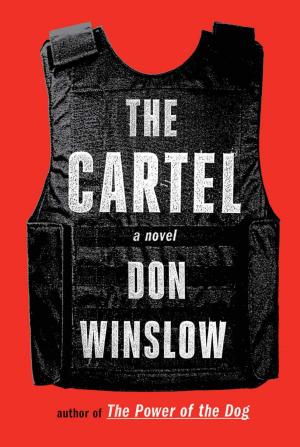Ohio has a chance to legalize marijuana this year, but the "monopoly" on commercial growing is drawing a lot of criticism.
A woman recites a prayer during a traffic stop turned drug bust. Is that evidence of drug trafficking? The US 10th Circuit Court of Appeals doesn't think so.
The best-selling author of The Savages sits down with the Drug Truth Network to discuss his new novel, The Cartel, and the futility of drug prohibition.
There's medical marijuana news from the far Pacific, with Hawaii okaying dispensaries and Guam releasing draft medical marijuana regulations, plus more.
Jail guards smuggling dope, cops helping drug dealers, cops ripping off drug dealers. Familiar stories, repeated over and over. Here's this week's bunch.
We're waiting for the big one to drop in California, there's marijuana arrest expungement news from Jamaica and Ohio, Colorado rejects medical marijuana for PTSD, Chris Christie talks crime and drug policy, and more.
A surprising analysis suggest the ResponsibleOhio legalization initiative could come up short on signatures, Guam releases medical marijuana program draft regulations, Obama visits a federal prison, Ohio's governor okays naloxone over-the-counter, and more.
Ohio election officials have disqualified more than half the signatures gathered for the ResponsibleOhio initiative, but the battle isn't over; a Michigan legalization initiative gets rolling, an Oklahoma report raises the curtain on asset forfeiture abuses, and more.
There will be an open container law for weed in Washington state, Rep. Earl Blumenauer (D-OR) files a bill to expunge some federal marijuana offense records, cops in one British county effectively decriminalize small-time pot offenses, there's a mystery surrounding a dead North Dakota student informant, and more.
A long-awaited (and overdue) report on California marijuana policy reforms is out, an Arizona appeals court rules that the odor of marijuana in a medical marijuana state is not sufficient grounds for a search warrant, the DEA gets criticized over its snitch program, and more.
This article was written in collaboration with AlterNet and first appeared here.
Ohio may about to legalize marijuana, but not the way other states have done it. A constitutional amendment that would go before voters in November would create a virtual monopoly on commercial marijuana grows for the entire state. That's not sitting well with a number of Ohioans, including the Republican state legislature and a good number of Buckeye State legalization and medical marijuana activists. It's also leaving major national drug reform organizations deeply ambivalent.
The
ResponsibleOhio initiative is almost certain to qualify for the ballot any day now. Its well-financed campaign has handed in more than 700,000 signatures to state officials, nearly twice the 305,000 valid voter signatures needed. Those officials have until later this week to verify the signatures. [Update: Monday,
state officials said the initiative was 29,000 signatures short, but
ResponsibleOhio has another 10 days to make up the shortfall and it says it will challenge the disqualified signatures at the state Supreme Court.]
ResponsibleOhio
The initiative allows adults 21 and over to grow and possess limited amounts of marijuana and calls for a system of regulated and taxed marijuana production and sales. It even has provisions for medical marijuana. None of that is controversial.
But under ResponsibleOhio's initiative, commercial marijuana production can only take place at 10 sites in the state. The sites have already been allocated to 10 sets of investors, who have kicked in $1.7 million for the campaign so far and are prepared to spend $20 million or more convincing the public to vote for it.
The investors include a number of Ohio business interests -- real estate developers, venture capital firms, philanthropists, with nary a Cheech or a Chong among them -- as well as some home state big names who could sway public opinion. These include NBA legend Oscar "Big O" Robertson, Cincinnati-based fashion designer Nanette Lepore, and former Cincinnati Bengals and Cleveland Browns defensive end Frostee Rucker (now with the Arizona Cardinals).
In return for their hoped-for voter-granted monopoly, the investor groups would pay a $100,000 fee and a 15% tax on their gross revenues, as well as other commercial fees. Critics have charged that the plan freezes out all but the initial investor groups, but ResponsibleOhio counters that there will be plenty of commercial opportunities in making and selling marijuana products.
While this written-in monopoly may seem strange to many, it's not going to seem so strange to Ohio voters. In 2009, they legalized gambling by approving a constitutional amendment that specified sites for four casinos owned by the companies backing the amendment.
ResponsibleOhio looks to have deep enough pockets to put on a full-scale, multi-million-dollar advertising campaign. Estimates are that to win in California next year, legalizers will have to spend $10 million or so in advertising, but ResponsibleOhio is talking about spending $20 million in a much smaller media market, and it doesn't have to go begging for donors.
The momentum is there. The entire country is riding a wave of increasing support for marijuana legalization, and Ohio is no exception. An April Quinnipiac University poll last month had support at 53% (it also had narrow majorities for legalization in swing states Florida and Pennsylvania), up two points from the same poll a year earlier.
Strange Bedfellows
But ResponsibleOhio is facing a head-on challenge from the legislature, attacks from legalizers left out in the cold, and a more general discomfort with constitutionally-mandated monopolies.
Late last month, the legislature approved a proposed constitutional amendment that would bar any addition to the state constitution that created "a monopoly, oligopoly, or cartel" to distribute a federally controlled substance. The proposed amendment specifies that if it passes, any initiative that conflicted with it -- i.e. the ResponsibleOhio initiative -- "shall not take effect."
If both initiatives passed, rest assured that lengthy legal battles would ensue, but in the meantime, marijuana legalization in Ohio would be dead in the water. While legislative leaders paid lip service to concerns about anti-competitiveness, the amendment is clearly designed to stop legalization and is the instrument of a body that has steadfastly refused to consider legalization for nearly 20 years.
That didn't stop some legalization supporters -- and ResponsibleOhio foes -- from applauding the move, and even encouraging it.
"We don't support the ResponsibleOhio initiative because we don't believe it achieves the goals of legalization, said Sri Kavuru, president of Ohioans to End Prohibition (OTEP), which is campaigning to get its own legalization initiative on the 2016 ballot. "I testified in favor of the anti-monopoly amendment, and I believe it will pass and get more votes than ResponsibleOhio," he told AlterNet.
The forthrightly named Citizens Against ResponsibleOhio doesn't mind siding with the Republican legislature, either, said the group's leader, Aaron Weaver.
"It is very interesting that all these different parties have come together with the same purpose in mind, to stop the hijacking of our constitution by private interests," Weaver said. "It's very strange indeed, but the collaboration of different groups for a mutually beneficial and moral purpose, I think, is a good thing."
"The current system is actually better than their plan. It gives them a monopoly where only these 10 groups get the right to cultivate commercially, and that's bad policy for the state," Kavuru argued. "It creates an environment that allows a black market to thrive, and it doesn't eliminate arrests. The purpose of legalization is supposed to be to get rid of criminal arrests."
The ResponsibleOhio initiative would increase penalties on some cultivators and would leave people under 21 subject to arrest, Kavuru charged. He also attacked its medical marijuana provisions.
"It doesn't actually give any protection for patients and only says a commission 'may' implement a medical program," he said. Everything for recreational is 'shall.'"
Ohio Families CANN is also not satisfied with ResponsibleOhio's initiative, said Nicole Scholten, a spokesperson for the group, which seeks access to marijuana to treat sick children.
"We are wary of ResponsibleOhio's approach," she said. "We are not convinced it would yield the type and volume of medical cannabis that would be effective for our children. Legalization does not equal sustainable medicine. The medicine that would help our kids requires specific strains of cannabis and vast quantities. ResponsibleOhio's plan to have only ten grow sites is problematic. There is no guarantee these businesses would devote the grow space to the kind and volume of cannabis we need."
But another patient-activist organization that has tried unsuccessfully for years to get an initiative on the ballot, the Ohio Rights Group, is less negative. Its executive director, Jack Pardee, noted that the legislature has refused for nearly 20 years to even discuss marijuana legalization bills.
"We've been having a debate in our community about the merits of what the legislature is trying to do with this thing and, in my opinion, it has nothing to do with protecting Ohioans from economic forces," Pardee said. "ResponsibleOhio isn't perfect, but it has a lot of the pieces that ending prohibition needs to be successful."
National Drug Reform Groups Ambivalent
The divisions among Ohio activists are somewhat reflected by the national groups that have so far been the big players in marijuana legalization. None of them are directly involved with ResponsibleOhio -- it certainly doesn't need their fundraising abilities -- but they are watching with great interest and concern.
"It doesn't resemble our initiatives," said Marijuana Policy Project spokesperson Mason
Tvert. "We have not proposed such laws in the past, and it's not the type of law we would draft," he told
AlterNet.
"It's up to Ohio voters to decide if this is the kind of system they want to replace marijuana prohibition with," said Tvert. "It would get the job done, but we think marijuana should be treated like alcohol, and there should be a system where there can be a lot of competition and different businesses out there producing this product."
And he had a word of advice to Ohio activists opposing ResponsibleOhio.
"If they want to end marijuana prohibition, they need to weigh their opposition to this initiative against the possibility of having to wait longer for a better initiative," Tvert said.
"A lot of legalizers, we feel like the movement has been hijacked by the money people," said Keith Stroup, founder and currently counsel for the National Organization for the Reform of Marijuana Laws. "But the bottom line for NORML is that we want to legalize marijuana," he told AlterNet.
"While we'd have a preference for the little or medium-sized guy, we're not that concerned about who gets rich off it," the movement veteran said. "We're about not treating marijuana users like criminals, and we can speed that process along by three or four or five years because some rich investors run their own initiative, if it actually legalizes pot smoking and dispensaries where they can buy, if they qualify for the ballot, we will support it even if it's not perfect."
Stroup took great umbrage with the legislature's move to block the initiative.
"That's a bad faith move by the legislature," he growled. "The reason we have the initiative process is because legislatures were not responsive to the will of the people, and now we have a case where the people are going around the legislature, and the legislature is going to try to go around the people."
Stroup prophesied high-stakes litigation if ResponsibleOhio wins at the ballot box, but its victory is nullified by passage of the legislature's initiative.
"That undermines the basic purpose of initiatives, and we have at least one legal opinion that nothing in that resolution would in any way affect the initiative if it were to pass," he said. "I hope the courts act in that case."
"We've fought for a long time to end marijuana prohibition for civil rights, social justice, public health, and public safety reasons, and to create a legal market," said Ethan Nadelmann, executive director of the Drug Policy Alliance, "But to then have some folks come along trying to create a constitutionally-mandated oligopoly kind of sticks in everybody's craw."
DPA has worked and is working on legalization in a number of states, and was consulted in the drafting of the ResponsibleOhio initiative, but is not endorsing it. Nadelmann's ambivalence was indicative of the mixed feelings the measure is arousing among activists.
"The fact is, we have investors putting up $20 or $30 million to win this thing in a state that will be the center of national political attention next year -- no one else is going to do it in Ohio. There is a possibility the oligopoly provision could get knocked out. The best outcome would be for this initiative to win, and then get that knocked out," he said.
"Aside from the oligopoly provision, it's actually pretty good," Nadelmann continued. And after criticism of an earlier draft, "they were actually pretty solicitous, they added home grow, medical marijuana protections, and the distribution model is pretty good."
Who Will Be in the Driver's Seat?
But the ResponsibleOhio move also signals the emergence of monied interests whose deep pockets could leave activists and the drug reform movement on the sidelines -- and who may not share the same interests dear to the hearts of reformers.
"There's something similar going on in Michigan," Nadelmann noted, referring to an as-yet-to-filed initiative from the Michigan Responsibility Council, one of three groups planning legalization initiatives in the state right now. "And look at Arizona, there's a lot of industry funding there, and there's been hard negotiations between MPP and those guys."
"The influence of DPA, MPP, and other activists is going to diminish rapidly," he predicted. "This is going to be increasingly driven by industry, and a lot of competing interests within the industry. And as this evolves into legislative processes, other forces are going to come into play and certain players will be able to make their demands felt. Social justice concerns could get knocked out."
If Not ResponsibleOhio, Who, and When?
The unhappy Ohio legalization activists and other ResponsibleOhio critics say that if and when it is defeated, they can move forward with their own legalization plans. Given the legislature's recalcitrance, that means they would have to run their own initiative campaign.
They haven't been able to do that so far, and while some, such as OTEP's Kavuru, say they can do it now, others aren't so sure.
"We have access to a lot of money," Kavuru said. "And we have a real solid political team. We're in negotiations right now for significant funding, and it's much easier to raise money for a recreational initiative than a medical one, because people are also looking at it as an investment."
But ResponsibleOhio is here and now, and if it goes down, it remains to be seen if anyone else can actually get on the ballot.
"If this is defeated this year, I doubt any major funders would step in to play a role in 2016," said NORML's Stroup. "I understand. The people in Ohio feel they were doing a great grassroots effort and hear these rich guys came along and bought the space. But the Ohio activists so far haven't shown they can get the funding to do good surveys, let alone pay for signatures or a professional campaign. This year may be our chance to take a conservative state like Ohio and leapfrog it ahead on legalization. I'm not real comfortable with ResponsibleOhio, but I just want it legalized."
The fun is just beginning in Ohio.
back to top
special to the Chronicle by Houston-based investigative journalist Clarence Walker, [email protected]
Does praying to a "narco saint" constitute evidence that someone is a drug trafficker? In an unusual case out of the 10th US Circuit Court of Appeals in Denver, the court said "no." In overturning the conviction of the woman doing the praying, the court both acted to protect First Amendment freedoms and opened a window into Santa Muerte, the unofficial Saint Death venerated by hundreds of thousands, possibly millions, of poor Mexicans, some of whom are members of the criminal underworld.

Santa Muerte shrine, Nuevo Laredo (wikipedia/not home)
In the truck were Tulsa residents Rafael Goxcon-Chagal and Maria Medina-Copete. Also in the truck, stashed in a secret compartment, were two pounds of 90% pure methamphetamine. The couple, who had borrowed the truck, denied any knowledge of the drugs, but they were nonetheless charged with trafficking meth. They were convicted in August 2012 for conspiracy to distribute more than 50 pounds of meth and firearms possession. They were sentenced to 15 years in federal prison.
The prayer the woman was reciting was to Santa Muerte, and the fact the she directed her adorations toward the Mexican "narco saint" helped convict her of drug trafficking.
Who is Santa Muerte?
For years, religious experts and law enforcement authorities have called Santa Muerte a "narco saint," worshipped by drug traffickers and who believe she has the power to protect them from their enemies -- who range from other traffickers to the police.
Santa Muerte is typically portrayed as a skeletal woman, wearing robes or a bridal gown, and holding a scythe -- a sort of Grim Reaper figure. For the millions that venerate her, she is a figure of compassion, protection, and unconditional love who will protect her devotees from evil. She is the saint of the marginalized, as well as the criminal.
For the Catholic Church, worship of Santa Muerte is blasphemy. Still, her popularity continues to grow, and each November, thousands of worshippers gather at her main shrine, in the rough and tumble Tepito district of Mexico City to get her blessings and bestow gifts -- both humbly modest and gaudily golden -- on her statue.
She is estimated to have 10 to 12 million devotees, not just in Mexico, but, increasingly, in the US and other Latin American counties as well.
Muerte, the Skeleton Saint."
While it began among the lumpenproletariat of Mexico City and has always been associated with criminals and narcos, the experts concede that Santa Muerte is worshipped by many who are simply poor and on society's fringes.
"Santa Muerte has been used as evidence and used as probable cause in some cases," Chesnut explained. "But she is not just a narco-saint, and many of her devotees aren't involved in criminal behavior. Some drug traffickers pray to Saint Jude, a recognized Catholic Saint, but that deity is rarely brought up in criminal cases," he pointed out.
Chesnut called the appeals court's ruling in the case "a landmark decision," adding that it marked the first time to his knowledge "that a conviction has been overturned because a folk saint was used in trial."
Challenging the "Expert Testimony"
Goxcon-Chagal andMedina-Copete appealed their convictions, with their attorneys arguing that federal prosecutors and the district court judge had subjected them to harmful error by allowing an expert on religious iconography to testify that Santa Muerte was so intimately connected to drug trafficking that Medina-Copete's invocation was evidence the pair knew illegal drugs were secreted in their vehicle.
The expert was US Marshal Robert Almonte, producer of the documentary, Patron Saints of the Mexican Drug Underworld. Almonte is also the author of two books, "Evolution of Narcotic Investigation" and "Managing Covert Operations."
The appellate attorneys also argued that Almonte's testimony about Santa Muerte 's association with narcotics severely undermined the defendants' defense that they had no knowledge of the drugs because the truck had been borrowed from one of Goxcon-Chagal's friend. They argued that the admission of Almonte's testimony violated federal rules of evidence.
Federal prosecutors retorted that the testimony was admissible under rules about evidence relating to "tools of the trade" of the drug business.
The 10th Circuit disagreed. In their ruling last year, the court found that prosecutors had indeed violated the rules of evidence by using Almonte's testimony, which the panel likened to "psychobabble."
The district court had erred in allowing the testimony because "it applied our 'tool of the trade' jurisprudence to Almonte's purported area of expertise without considering whether a prayer could qualify as a 'tool of the drug trade,' " wrote Judge Carlos Lucero for the majority. He is the first Hispanic judge to sit on the circuit.
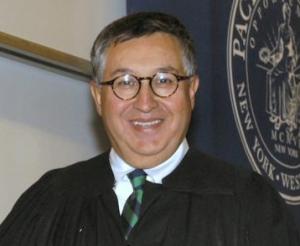
US 10th Circuit Court of Appeals Judge Carlos Lucero (law.pace.edu)
It was a double whammy: The prosecution did not show Almonte knew what he was talking about, and the lower court misinterpreted the rules of evidence to allow religious beliefs to be considered tools of the drug trade.
As a result, Judge Lucero noted, "Almonte's expert testimony characterizing the mere presence of the prayer as a very good indicator of possible criminal activity influenced the outcome of the trial in a prejudicial manner."
Lucero didn't hold back with what he thought of Almonte's testimony, either.
"He essentially painted the defendants in this case as heretics, holding beliefs not recognized by the Catholic Church either in Mexico or the United States. A criminal trial is not a place for a theological disputation on sainthood and the power of prayer. We urge the government to be cautious about appearing to take sides in theological debates," he wrote.
Out of the Frying Pan
While the 10th Circuit's decision reversed Goxcon-Chagel and Medina-Copete's convictions, it didn't free them. Instead they were transferred from federal prison to a federal detention center for retrial.
Things didn't look good for the pair. They had, after all, been caught with the meth, and the appeals court allowed to stand trial testimony from a DEA agent about the unlikelihood of drug traffickers sending loads of drugs with unknowing couriers.
Defense attorneys explored both the circumstances of the traffic stop and any investigations that might have preceded it, but were unable to find wriggle room there.
"Part of the problem is the standard permitting 'pretext stops,'" Goxcon-Chagel attorney Katherine Converse told the Chronicle. "Another problem is the difficulty of learning whether there was any NSA involvement in the stop," she added, referring to recent revelations of NSA intelligence being fed to DEA officers and on to local law enforcement agencies to launch drug investigations against potential suspects.
After lengthy negotiations with federal prosecutors, and without much in the way of a defense to the drug charges, Converse and Media-Copete's attorney advised their clients to take a plea. In February, Goxcon-Chagel copped to the charges and got 7 ½ years; Medina-Cotete, the praying woman, got four. Because of time already served, she's already been released.
And she probably sent a prayer of thanks to Santa Muerte.
Here is the complete hand-written prayer to Santa Muerte recited by and recovered from Maria Medina-Copete:
For protection during a trip
Holy Spirit of Death, I invoke your Holy Name to ask you to help me in this venture.
Make my way over the mountains valleys and paths an easy one,
never stop bestowing upon me your good fortune
weave the destiny so that bad instincts vanish before me because of your powerful protection.
Prevent, Santa Muerte, problems from growing and embracing my heart, my
Lady, keep any illness from embracing my wings (Illegible)
Glorious Santa Muerte be my protector and light my path. Be my
advocate before the redeemer. Be my truth in times of darkness
Grant me the strength and faith to invoke your name
and to thank you now
and forever for all your favors
Amen
Oh miraculous Santa Muerte, Niña Blanca of my heart and right arm of god
our lord. Today I come to you with infinite devotion to implore you for
health, fortune and luck
Remove from my path (illegible) that hurts me, envy and misfortune; don't
allow my enemy's slander reach and harm my spirit
may no one prevent me from receiving the prosperity that I am asking of you today
my powerful lady bless the money that will reach my hands and multiply it
so that my family lacks for nothing
and I can outreach my hand to the needy that crosses my path
keep tragedy pain and shortage away from me
this votive candle I will light so that the radiance of your eyes forms an
invisible wall around me
grant me prudence and patience holy lady, Santa Reina de las Tinieblas
("Holy Queen of Darkness") strength, power and wisdom tell the elements
not to unleash their fury wherever they cross paths with me take care of my
happy surroundings and that I want to adorn decorate
in my Santa Muerte
amen
back to top
This article was written in collaboration with AlterNet and first appeared here.
Internationally acclaimed novelist Don Winslow's The Cartel, a hard-hitting and gut-wrenching tale of the Mexican drug wars, hit the stands late last month and is currently #17 on the New York Times best seller list. A sequel to his best-selling novel of the cartels, The Power of the Dog, Winslow's latest effort is a true-to-life, ripped-from-the-headlines story of power, greed, corruption, brutality, revenge, and justice set in the past decade of spiraling prohibition-related violence in Mexico.
Roughly 100,000 people have been killed in Mexico's drug wars since 2006, and another 20,000 or so have simply vanished. That blood-drenched history is the spindle from which Winslow
unspools his story, featuring a veteran DEA agent locked in a decades-long feud with the head of the world's most powerful cartel. It's a grim, nail-biting crime thriller.
But Winslow, who also authored 2012's Savages, another fictional treatment of the cartels turned into an Oliver Stone movie, isn't just writing for the sake of selling books. He has used the publication of The Cartel to pen op-eds calling the war on drugs a counterproductive failure and publish a full-page ad in the Washington Post telling Congress and the president "It's Time to Legalize Drugs."
On Friday, Winslow traveled to Houston to sit down for an interview with Dean Becker of the Drug Truth Network for the network's Cultural Baggage radio program. Here's the interview:
DEAN BECKER: Hello, dear listeners, this is Dean Becker and I want to thank you for joining us on this edition of Cultural Baggage. Well folks, I've been enjoying this new book, it's a powerful indictment of this war on drugs, it's written by the author Don Winslow, the name of the book is The Cartel, and we have him with us today. Mr. Winslow, your book is a powerful indictment of the futility of this drug war, and first off, I just want to thank you, sir.
DON WINSLOW: Well, thank you, sir, for that kind comment, and I appreciate it.
DEAN BECKER: Now, with the release of this book you also took out a full-page ad in the Washington Post decrying that futility and calling for the powers that be to take another look at the results of this drug war, and once again, I commend you, sir.
DON WINSLOW: Well, thank you. You know, I felt it was important to do something like that. At the end of the day, I'm a novelist and I write fiction, and I'm an entertainer, at the same time we're dealing with obviously serious issues that have had serious consequences on so many people in the United States, but of course particularly in Mexico. And so I just thought that I should try to do something.
DEAN BECKER: Now, Don, The Cartel, this new book, it's a follow-up to The Power of the Dog, and I think much of your similar or previous writings, and it continues the story of Agent Keller and a couple of others from that first book, but it's more, it's much more, and would you please just kind of give us a summary of your new book, The Cartel.
DON WINSLOW: Well, yes, thank you. The Cartel as you said is a follow-up to a book I did ten years ago called The Power of the Dog, which follows a DEA agent named Art Keller, who arrives in Mexico in the 70s full of idealism, and is over the years sort of schooled out of that by reality. But, he ends up in a vendetta with a drug lord, if you will, named Adan Barrera. And, so The Cartel continues that story. But, you know, it's not a book I really wanted to write, Dean. I really fought against writing it for a long time, but as things spiraled out of control in Mexico, you know, far beyond our worst nightmares, really, and I thought, well, I'll try a in fictional sense, you know, to crime readers, to try to explain what was going on down there.
DEAN BECKER: Well, a few years back I took a one-day junket into Ciudad Juarez, and the machine gun nests in the city park, cops on every street corner -- I didn't see the violence myself, but it was palpable, it was, it was, just -- scary, for lack of a better word. Your thoughts, sir.
DON WINSLOW: Well, you know, the estimates vary of course, but during this era something like 100,000 Mexican people were killed, 22,000 missing. Juarez and Nuevo Laredo, and Tijuana, and the Frontera Chica, and the Texas border -- you know, all became battlegrounds in a multi-fronted war, cartel versus cartel. The military versus the cartels, the military versus the police, certain police forces versus other forces, and of course, you know, many, too many, innocent civilians got caught in the crossfire.
DEAN BECKER: Now, Don, you state in your acknowledgements that The Cartel draws deeply on real events, and I see many of them, I've been following the war in Mexico for several years, and it just seems that, you know, it made it more compelling to be based on a true story, so to speak.
DON WINSLOW:I'm an historian by training and inclination, and so I usually like to keep my stories pretty, pretty close to the bone. But I think that in a way, novelists can do things that journalists aren't allowed to. You know, we're allowed to imagine the inner life of characters, we're allowed to make up dialogue that perhaps brings out some of these events in a maybe more visceral way to readers who might not, you know, pick up a piece of journalism on this subject. And so, I like that combination between fiction and reality, and as long as I sort of keep their thoughts and their emotions fairly realistic, I think the novel can work well for that.
DEAN BECKER: Now, Don, back in 2012, with my group Law Enforcement Against Prohibition, I rode across the country with Javier Sicilia and about a hundred family members of those butchered in Mexico on the Caravan for Peace, and most of them were women who had these horrible stories that made me cry every night, I'll be honest with you. And your book includes the stories of some of these women, and the pain and misery they endure as well.
DON WINSLOW: As you know when you deal with this topic, it's all too easy to lose your faith in humanity. But, in researching the stories and writing the stories about some of these women, it's awe-inspiring. You know? There's no other word for it. The courage and the moral fortitude, and I think in the video I saw of the Caravan, the word grace is used, and I think that that might be absolutely the perfect word to describe these women, who have lost so much and have moved ahead and have moved on and tragically, you know, too often at the cost of their own lives.
DEAN BECKER: It seems that media everywhere is starting to recognize this futility of the drug war, and is starting to expose it for what it is, and that is hopeless.
DON WINSLOW: We've been doing the same thing for coming on now 45 years, and not only is it not working, it's made things worse. Drugs are more plentiful, more potent, cheaper than ever, and again, it's had a hideous effect on American society in terms of the number of people we imprison, in terms of the alienation of our police forces with our inner city communities. I think the militarization of police really began with the war on drugs, and of course, it's had the worst effect on the people of Central America, particularly Mexico. So, if something after 45 years has not improved a situation, but made things worse, then I think it's time that we looked at different solutions.
DEAN BECKER: Indeed.
DON WINSLOW: And I think that that's pretty obvious, really.
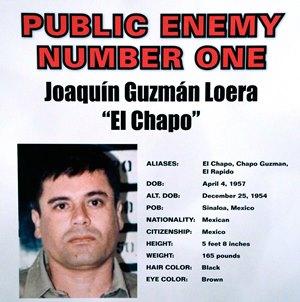
The face of the cartels. Has anyone seen El Chapo?
DEAN BECKER: Yes, sir. If you will allow me, I want to read just a paragraph here from your book, this is from Alvarado. He states: "You North Americans are clean because you can be. That has never been a choice for us, either as individuals or a nation. You're experienced enough to know that we're not offered a choice of taking the money or not, we're given the choice of taking the money or dying. We've been forced to choose sides, so we choose the best side we can and get on with it. What would you have us do? The country was falling apart, violence getting worse every day. The only way to end the chaos was to pick the most likely winner and help him win, and you North Americans despise us for it. At the same time you send the billions of dollars and the weapons that fuel the violence. You blame us for selling the product that you buy. It's absurd, John."
DON WINSLOW: I don't know how to respond to my own writing. I think it's the truth. Couple of thoughts: You know, we're very good up here at wagging the finger of corruption at Mexico. Is there corruption in Mexico? Of course, and I write a lot about it. I'm not alone in that. But as that passage indicated, what we don't understand is that police and journalists and average citizens are not offered the choice: take the money or leave it. They're offered the choice: take the money or we kill you. And very often, or we kill your family.And you know, the so-called Mexican drug war is one of the most tragic misnomers of the last half century. It's not the Mexican drug problem; it's the American drug problem. We're, we're the buyers, and it's the simultaneous appetite, American appetite for drugs and prohibition of them that creates the power of the cartels and that shields this violence. And, if I were on the other side of the border looking north, I'd talk about corruption, I would ask what kind of corruption exists in American society that makes you Americans the largest drug market in the world? At a rate of five times your population.
DEAN BECKER: And the world's leading jailer.
DON WINSLOW: The world's leading jailer. Not only the world's leading jailer, Dean. In the history of the world we have the largest prison population.
DEAN BECKER: Kind of tied in with your action to do that full-page ad in the Washington Post, I tried last summer to wake up our nation's leaders with release of my book. We hand-delivered a copy of my book to the president, his cabinet, every senator, representative, all nine Supreme justices, and we mailed a copy to all fifty governors, to pretty much little avail. And I'm hoping that your book lights a bigger bonfire on their conscience.

Waiting to cross from Mexico into the US (wikimedia.org)
DON WINSLOW: Well, thank you, I hope so too. You know, I deliberately put that ad in the Washington Post in order to do it in Congress's home town, hoping that that paper would arrive on their desks with their coffee. I think that ad was two weeks ago or three weeks ago, I don't remember, it's been a little bit of a blur, you know, I'm out on a book tour. But, I've not heard from a single politician. Who I have heard from? Cops.
DEAN BECKER: What was their response?
DON WINSLOW: Agreeing with it.
DEAN BECKER: Well, that's good to hear. I mean, it puzzles me that the evidence is so glaring, we can cut down on death, disease, crime, and addiction were to legalize and control it for adults, but no one wants to talk about that. Certainly not at the presidential level.
DON WINSLOW: Well, you know, I think, Dean, for so many years it's been the fourth rail of American politics. You know, you start talking about a sane drug policy and your opponent then starts talking about you being soft on crime, and, you know, oh he wants our kids to have access to dope. Which of course they do now, because it's not working. What I would like is some politician to stand up and talk back with the facts. The numbers are there, the solid data are there. If you want to talk about being soft on crime, I would say that the fact that 60 percent of rapes and 40 percent of murders now go unsolved, because we're so focused on busting drugs. To me, that's soft on crime. And I think police want to go back to doing real police work.
DEAN BECKER: I'm with you, sir. Now, it seems like every week I see another headline about another bust of a quote top narco-trafficker, but the fact is, it's just a chance for another corn farmer to get down off the tractor and attempt to become a billionaire, isn't it?
DON WINSLOW: Listen, it's never worked. We have tried to attack the drug organization pyramid from the bottom, the street-level kids selling crack on the corner, to the middle, the traffickers coming across the border, to the top, going after these top drug lords. None of these strategies work because the amount of money they can make is so great that there is always someone willing to step into any of those roles. So, you know, there was great celebration when for instance Chapo Guzman was captured. That's fine, I have no tears for Chapo Guzman, I'm glad he's in prison, I have no tears for any of these drug lords who've been killed by the police. However, it makes no difference. Nothing was disrupted, nothing was even slowed down. The drugs just keep coming. The strategy does not work. And as long as we approach this as a law enforcement problem or god help us a military problem, we're, the same thing is going to on and on and on.
DEAN BECKER: You know, a couple of portions of the book touched me deeply. One was about the old farmer, Don Pedro, and his battle for his ranch with the Zetas. That one made me cry, I'm an old man, I'm sorry, and it just made me think of, you know, these bandits, these rapscallions, what they're up to, the Zetas. Would you talk about that situation?
DON WINSLOW: Well, you know, that is based on a real incident. It was impossible to resist writing about it, but, you know, I think there are two parts to your question, so let me take the first one first. Back in, you know, 2010, '11, and '12, various cartels were forcing people off their land because either it was strategically located along the border or just because they could. The Zetas that you mentioned were looking for land for training camps and secret bases, and they were all-powerful, or so they thought, and they could just go tell people, get out. In northern Chihuahua, along the Texas border, the Sinaloa Cartel was fighting the Juarez Cartel, and they were literally colonizing the area. They were telling, you know, people in that area, in the Juarez Valley that had been there for generations, to get out, and moving Sinaloans in, almost like colonists, in order to secure that area. Who's on first now? Without a doubt the Sinaloa Cartel. They're the dominant cartel in Mexico now. They basically won the war. There's a sort of an upstart cartel, the new generation Jalisco Cartel, and we're in a bit of a lull, but that's about to collapse. You know, over the past month or so violence has drastically increased again in the Tijuana area. So, stay tuned.
DEAN BECKER: Your book references some of the videos that get circulated by the cartels, showing their commitment to outdoing each other in the way they torture and kill members of the opposite cartel. I saw one of those that, where one cartel had grabbed the wives and girlfriends of another cartel. They pulled out axes and chainsaws, and built piles of arms...
DON WINSLOW: That sounds familiar, that video.
DEAN BECKER: Oh god. And, my Spanish was not good enough to understand all they said, but it was a strong message, for sure.
DON WINSLOW: You know, lately we've been as a nation very absorbed with ISIS, and those videos, and they took that page out of the cartel playbook. What you're looking at is basically terrorism in Mexico. And, you know, the cartels are in the territory business, they need to control territory, and to do that, they need to control the population. And they do it through a variety of methods, but one of them is terror. And, and when they put out videos like that, they are really saying to the people, you don't want this to be you. The Spanish that is being spoken in many of these videos is to get these people to confess their roles in the rival cartel, sometimes to confess their crimes because these videos are also a means of propaganda, and a means of the cartels justifying, or attempting to justify, the horrors that they commit, in a very similar way to the ISIS videos. The really sad aspect, or more tragic aspect of these videos, is that they're used as tools of recruitment. Particularly young people, both men and women, see these videos, and see them as demonstrations of power. And I think that there are few things more seductive to people who see themselves as powerless than to see power, and just as the ISIS sadistic videos have been great recruiting tools for ISIS, the videos that you alluded to have been recruiting tools to the cartels.
DEAN BECKER: The hundred thousand dead, approximately, the 20,000 missing, the tens of thousands of children without parents -- it's just so enormous, and yet somehow it's ignored. That doesn't count in the US's drug war equation.
DON WINSLOW: The modern day Mexican drug war, the contemporary period that we're looking at, coincides almost exactly with the post-911 era. And I think that the United States has been, and it's understandable, Dean, because of 911, because of the lives lost, because we've had people in Iraq and Afghanistan, and our soldiers dying and wounded, we have been obsessed with, and most of our attention has gone to the Middle East. That, that's understandable, I think. I'm not saying it's right. I'm not saying it's good, but I think that, that people can only absorb so much violence and sorrow and tragedy. I think though that the other part of the equation is that, that we don't want to look at it down there. It's something we don't want to see because I think on some level we are aware of the role that we play in it, and our own responsibility for it, and I think that that can be a hard mirror to look into. And sometimes people, and particularly our politicians, frankly, would rather look away.
DEAN BECKER: It kind of draws a parallel with the cops busting somebody and accusing them of being the cause of the problem here in the US -- if they weren't buying drugs then these other situations would not occur. But the same could be said about the US and as you stated earlier, our addiction to these drugs coming through Mexico.
DON WINSLOW: I think we are addicted to the drugs. Now obviously, we have a population in the United States that is literally addicted to drugs. The percentage of that never changes very much over the years. There are some spikes with certain drugs at certain times, but the level of drug addicts remains about the same, that's sort of one topic. The other topic is recreational drug users, and they need to look at their responsibility. I can't understand for instance why a person who would be so concerned about buying free trade coffee or fair trade coffee would then think nothing of buying marijuana that has blood all over it. You know? I don't understand people who go out and protest against big business but then will come back and buy a product that's been shipped to them by a cartel that tortures and slaughters and rapes. This makes no kind of moral sense to me. So, in my perfect world, all drugs would be legal and no one would use them. But certainly, in the time until the United States straightens out its drug laws, until we've stopped forcing the hands of these sadistic criminals, I'd love to see a movement where particularly young people in America boycotted these drugs, the way they boycott other products.
DEAN BECKER: The book was a follow-up to Power of the Dog, and it seems that there may be, as you mentioned earlier, a need for another book in this series, if Los Pinos and the White House continue to believe this drug war to be necessary.
DON WINSLOW: It's my fondest hope and prayer that there's no need for a third book. I would love it if Los Pinos and the White House took me out of this business. I don't have plans to write another drug book, you know, next or for a few years, but then I'm really hoping at that point when I look around this landscape that we have come to some sort of sanity, and some sort of wiser policy, and that there's no need for a third book.
DEAN BECKER: Well, me too. I'm keeping my fingers crossed and deep prayer in that regard. Well, Don, here's hoping we can continue this discussion again soon and that just maybe, the politicians will read your book and pull their heads out soon. Is there a website, some closing thoughts you'd like to share with the listeners, Mr. Don Winslow?
DON WINSLOW: I have a website, DonWinslow.com, and, you know, always happy to hear from anybody. I have been very encouraged over the past two weeks by the number of police officers and DEA people that have contacted me. And I think there is a little momentum right now. You know, yesterday the United Methodist Church came out calling for war, an end to the war on drugs, addressing Congress. So I think that there might be a little bit of a groundswell, and I'm going to choose to go with that optimism.
DEAN BECKER: Once again, I want to thank Don Winslow, author of The Cartel.
back to top
There's medical marijuana news from the far Pacific, with Hawaii okaying dispensaries and Guam releasing draft medical marijuana regulations, plus more.
ColoradoLast Wednesday, state officials rejected medical marijuana for PTSD. Health officials voted against adding PTSD to the list of qualifying ailments for medical marijuana. They cited scant research on the issue. "We can't have physicians counseling people in favor of it because we don't have data to show it's correct," said Jill Hunsaker-Ryan, one of the board members who voted no.
Hawaii
Last Tuesday, Hawaii began moving toward licensing dispensaries. After Gov. David Ige (D) signed a bill allowing for eight dispensaries to operate in the state, state officials are moving forward with developing rules and regulations for the program. They say to they will begin accepting license applications early next year. The move comes 15 years after Hawaii became the first state to okay medical marijuana through the legislative process.
Guam
Last Thursday, the US protectorate released medical marijuana draft regulations. The Guam Department of Public Health and Social Services has released draft rules for the island territory's medical marijuana program. Guamanians voted to allow medical marijuana in last November's elections. The rules must be approved by the legislature. Click on the link to read the draft rules.
Michigan
Last week, Michigan cops raided medical marijuana dispensaries. Police departments in the greater Detroit area have shut down several dispensaries in the past week, in some cases bringing felony charges against the operators. Raids, arrests, and seizures took place in Shelby Township and Detroit last week. While the city has an estimated 180 dispensaries, they are illegal under the state's medical marijuana law.
On Tuesday, a state panel deferred a decision on medical marijuana for autism. The Michigan Medical Marijuana Review Panel postponed action on recommending whether or not autism should be a qualifying condition for medical marijuana. The panel said it wanted more time to review the evidence.
[For extensive information about the medical marijuana debate, presented in a neutral format, visit MedicalMarijuana.ProCon.org.]
back to top
Jail guards smuggling dope, cops helping drug dealers, cops ripping off drug dealers. Familiar stories, repeated over and over. Here's this week's bunch. Let's get to it:
In Hagerstown, Maryland, a Maryland state prison guard was arrested last Wednesday on charges he was smuggling drugs into the prison. Matthew Charles Scott, 28, went down after he obtained drugs and cash from a snitch working for a county drug task force. He is charged with attempting to possess controlled dangerous substances with the intent to distribute and conspiracy to distribute narcotics.In Lafayette, Louisiana, a Lafayette Parish jail guard was arrested last Wednesday for bringing contraband, including unspecified "illegal substances," into the jail. Jayron Lenoir, 27, went down after authorities received a tip that he was smuggling in goodies. He is charged with introduction of contraband into a penal facility and malfeasance in office.
In Newark, New Jersey, an Essex County sheriff's deputy was arrested last Thursday in connection with a sprawling heroin distribution conspiracy. Officer Robert Andrews, 28, is charged with hindering the investigation into the drug ring and fourth degree obstructing administration of law. He allegedly provided information to one of the subjects of the investigation and assisted in identifying law enforcement officers. More than four dozen people have been arrested in the crackdown on the ring, dubbed Operation TIDE.
In McAllen, Texas, a former Mission police officer was arrested Monday for allegedly stealing several bundles of cocaine from a home and staging a fake drug seizure a few days later to try to conceal the theft. Hector "Jo Jo" Mendez, 45, is charged with possession with intent to distribute more than 5 kilograms of cocaine. The charge carries a maximum life prison sentence and $10 million fine. The 17-year veteran had been assigned to a DEA drug task force.
In Houston, Texas, a former Houston police officer was convicted Monday for her role in a cocaine trafficking operation. Jasmine Bonner, 27, had admitted aiding a major cocaine supplier after he had already been identified as a target of a federal drug investigation. He was her boyfriend. She had been arrested in possession of a pound of cocaine she had agreed to transport. She was convicted of aiding and abetting possession with the intent to distribute cocaine. She's looking at a mandatory minimum five years in federal prison, and up to 40 years.
back to top
We're waiting for the big one to drop in California, there's marijuana arrest expungement news from Jamaica and Ohio, Colorado rejects medical marijuana for PTSD, Chris Christie talks crime and drug policy, and more.
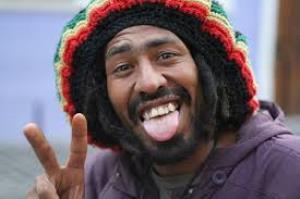
Jamaica will expunge the records of people with minor ganja convictions. (wikimedia.org)
Big California Legalization Initiative About to Drop. A handful of marijuana legalization initiatives have already been filed in the Golden State, but many observers have been waiting for the one from the California Coalition for Cannabis Policy Reform, and now the group has announced it will file its initiative within the next few weeks.
Ohio Officials Approve Initiative to Expunge Marijuana Convictions. The Ohio Ballot Board voted 3-2 Wednesday to approve the Fresh Start Act for signature-gathering. The initiative would allow convictions to be expunged once marijuana is legal in the state. The initiative is another project of ResponsibleOhio, the people behind the controversial marijuana legalization initiative almost certainly headed to the ballot there this year.
Medical Marijuana
Colorado Rejects Medical Marijuana for PTSD. Colorado health officials voted Wednesday against adding PTSD to the list of qualifying ailments for medical marijuana. They cited scant research on the issue. "We can't have physicians counseling people in favor of it because we don't have data to show it's correct," said Jill Hunsaker-Ryan, one of the board members who voted no.
Hawaii Moves to Begin Licensing Dispensaries. After Gov. David Ige (D) signed a bill Tuesday allowing for eight dispensaries to operate in the state, state officials are moving forward with developing rules and regulations for the program. They say to they will begin accepting license applications early next year. The move comes 15 years after Hawaii became the first state to okay medical marijuana through the legislative process.
Heroin and Prescription Opiates
Connecticut Governor Signs Bill Aimed at Opiate Problems. Gov. Dannel Malloy (D) Wednesday signed into law House Bill 6856, which is meant to combat opiate addiction and overdoses by increased prescription drug monitoring and increased access to naloxone, the opiate overdose reversal drug. Prescribers must now report each opioid prescription to the state's Prescription Monitoring Program within 24 hours instead of the previous seven days.
Criminal Justice
Chris Christie Calls for "Fresh Approach" on Criminal Justice. The New Jersey governor and Republican presidential contender today unveiled criminal justice reform proposals, including allowing nonviolent drug offenders a better shot at rehabilitation. He also emphasized "community policing" in his policy speech in the crime-ridden city of Camden. "As governor, there are few things I've worked on harder, or that I believe as strongly as this: Drug addiction, just like cancer, is an illness," Christie said. "Instead of settling for jail time every time, we need to give people the chance to get help," he said. "Our drug court program works, and we've opened a new front in the fight against drugs -- one that saves money, keeps people out of prison, and is just good policy generally. There's no reason we can't replicate this nationally, and as president this is something I'll absolutely make happen."
International
Colombia Outpaces Peru in Coca Production, UNODC Says. The UN Office on Drugs and Crime (UNODC) reported Wednesday that Colombia had overtaken Peru in the sowing of coca crops. That's mainly because Peru reported a 14% drug in the area under cultivation in the face of aggressive measures by the government of President Ollanta Humala. But Peru may still be the world's largest cocaine producer, because its crop is more mature and higher yielding.
Jamaican Justice Minister Signs Order to Expunge Minor Marijuana Convictions. Justice Minister Mark Golding signed the expungement order Wednesday. The move comes after the island nation decriminalized marijuana earlier this year. Now, possession of less than two ounces is no longer a crime. Before that, an estimated 300 people a week were getting criminal records and possible life-long stigma for possession arrests.
Italian Marijuana Legalization Bill Filed. Benedetto Della Vedova, a junior minister for foreign affairs, Wednesday introduced a bill that would legalize the possession of up to a half-ounce of marijuana, allow for growing small quantities, and set up government-licensed marijuana retail outlets. The bill is cosponsored by more than 200 members of the country's 900-member parliament. The bill is supported by members of the governing Democratic Party and two opposition parties, the Left, Ecology and Freedom Party and the Five Star Movement.
(This article was prepared by StoptheDrugWar.org's lobbying arm, Drug Reform Coordination Network, which also pays the cost of maintaining this web site. DRCNet Foundation takes no positions on candidates for public office, in compliance with section 501(c)(3) of the Internal Revenue Code, and does not pay for reporting that could be interpreted or misinterpreted as doing so.)
back to top
A surprising analysis suggests the ResponsibleOhio legalization initiative could come up short on signatures, Guam releases medical marijuana program draft regulations, Obama visits a federal prison, Ohio's governor okays naloxone over-the-counter, and more.
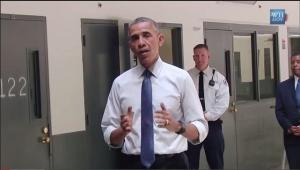
Pres. Obama delivers statement during prison visit (whitehouse.gov)
Ohio Legalization Initiative Could Fall Short on Signatures, But Will Fight If It Does. Columbus's 10 TV is reporting that its analysis of signatures gathered to put the ResponsibleOhio legalization initiative on the November ballot shows the initiative coming up 48,000 valid voter signatures short. That would be truly surprising, given that the group turned in 700,000 raw signatures and it only needs 305,000 valid ones to qualify. The group told 10 TV, however, that it could still collect signatures during a 10-day review period and that it could file legal challenges on signatures that were invalidated.
Michigan Democrat Will Introduce Legalization Bill. State Sen. Jeff Irwin (D-Ann Arbor) said today that support for legalization has reached critical mass and that he will introduce a bill to do just that. "You've got people on the left who are saying that people should not be having their lives ruined over something like marijuana and you've got people on the right who are saying marijuana prohibition and the war on drugs is the granddaddy of all big government programs," said Irwin. "It makes sense from a public safety and public health perspective to bring that activity into the regulated space where we can make sure that consumers are protected. And we can also take the hundreds of millions of dollars we're spending on prosecuting marijuana offenders and direct those resources towards real criminals with real victims." There are also at least three groups working on legalization initiatives.
Medical Marijuana
Guam Releases Medical Marijuana Draft Regulations. The Guam Department of Public Health and Social Services has released draft rules for the island territory's medical marijuana program. Guamanians voted to allow medical marijuana in last November's elections. The rules must be approved by the legislature. Click on the link to read the draft rules.
Harm Reduction
Ohio Governor Signs Emergency Bill to Increase Opiate Overdose Reversal Drug Access. Gov. John Kasich (R) Thursday signed into law a bill that will make the overdose reversal drug naloxone available over the counter. This is the third year in a row Kasich has signed a naloxone bill, each one more expansive than the one before. Two years ago, he authorized a pilot program for naloxone and last year, he signed a bill allowing friends and family members of drug users to carry the drug.
New Synthetic Drugs
North Carolina Bill to Ban N-Bomb Heads to Governor's Desk. The General Assembly Thursday approved House Bill 341, which would classify the synthetic psychedelic NBOMe, commonly known as N-Bomb, as an illegal controlled substance. The bill now heads to the desk of Gov. Pat McCroy (R). If he signs it, N-Bomb and its derivatives will become Schedule I controlled substances.
Criminal Justice
Obama Visits Federal Prison, Calls for Lesser Sentences for Drug Crimes. Wrapping up a week heavy on criminal justice, President Obama Thursday visited the federal prison in El Reno, Oklahoma, becoming the first sitting president to visit a federal prison. While there, he met with six drug prisoners and called for lesser sentences for drug offenses.
back to top
Ohio election officials have disqualified more than half the signatures gathered for the ResponsibleOhio initiative, but the battle isn't over; a Michigan legalization initiative gets rolling, an Oklahoma report raises the curtain on asset forfeiture abuses, and more.

Will they make the ballot or not? Check back in 10 days.
Ohio Officials Say ResponsibleOhio Initiative Short on Signatures, But… The office of Secretary of State Jon Husted said today that the ResponsibleOhio legalization initiative had come up 29,000 signatures short of qualifying for the ballot. The campaign had gathered nearly 700,000 and needed only 305,000 to qualify, which would suggest a bad signature rate far, far above what the conventional wisdom suggests, maybe 25% or 30%. But it ain't over yet. ResponsibleOhio now has 10 days to try to make up the shortfall, and it says it will go to the state Supreme Court to fight over some 40,000 signatures that "remain unaccounted for" in the secretary of state's tally.
Michigan Legalization Initiative Kicks Off Signature Gathering Drive. Supporters of the Michigan Legalize initiative held a volunteer kickoff meeting in Marquette last Saturday. They will need to gather some 315,000 valid voter signatures to qualify for the 2016 ballot. There is at least one competing initiative in the state, too.
Medical Marijuana
Michigan Cops Raid Medical Marijuana Dispensaries. Police departments in the greater Detroit area have shut down several dispensaries in the past week, in some cases bringing felony charges against the operators. Raids, arrests, and seizures took place in Shelby Township and Detroit last week. While the city has an estimated 180 dispensaries, they are illegal under the state's medical marijuana law.
Asset Forfeiture
Oklahoma Reports Show Asset Forfeiture Abuses. Audits by the State Auditor and Inspector's Office for the past five years show many district attorneys didn't have formal policies for dealing with seized property and that, in many cases, police didn't keep inventories of seized items. In some cases, seized money was spent before in was legally forfeited; in others, forfeiture cases were never filed for seized money. The report also found that seized money was used to pay for retirement plaques, a retirement party, doughnuts for a "spring roundup," and for a prosecutor's student loans and house rental. In the latter case, the prosecutor justified the rent payments saying that he spent most of his time on drug cases. Click on the link for more.
Drug Testing
Indiana Town to Stop Drug Testing Welfare Applicants… For Now. Black Township has agreed to stop drug testing applicants to its public assistance program until a lawsuit over whether the practice is constitutional is decided. The ACLU of Indiana filed the lawsuit in federal court in June. The judge in the case last week signed an order approving the agreement to stop drug testing until the case is settled.
Opiates and Heroin
New Jersey Governor Signs Prescription Monitoring Bill. Gov. Chris Christie (R) has signed a bill that will expand and tighten the state's prescription management program, one of a series of bills intended to combat the state's problem with heroin and prescription opiate use. The bill requires all doctors to register for the program and to check the program when patients return for a second refill on medications. The law is part of a 21-bill package targeting opioid and heroin abuse in New Jersey.
International
Australia Greens Call for Adoption of Portugal Drug Model. The Australian Green Party is calling for the country to follow the example of Portugal and decriminalize drug possession. It says Australia's current drug policies have failed, and the Portuguese model is the best path forward.
back to top
There will be an open container law for weed in Washington state, Rep. Earl Blumenauer (D-OR) files a bill to expunge some federal marijuana offense records, cops in one British county effectively decriminalize small-time marijuana offenses, there's a mystery surrounding a dead North Dakota student informant, and more.

British police in Durham have decided they have better things to do than go after small-time pot offenders. (wikimedia.org)
Congressman Introduces Federal Clean Slate for Marijuana Offenses Act. Rep. Earl Blumenauer (D-OR) today introduced a bill designed to expunge federal marijuana offenses that are no longer illegal in a number of states. The Clean Slate for Marijuana Offenses Act of 2015 would clear the records of those federally charged with state-legal marijuana activity and those federally charged with possession of less than an ounce. It's not yet up on the congressional web site. Activists said its effects would be mainly symbolic.
Marijuana Legalization Money Being Raised in Maine. There are two competing legalization campaigns in the state, and both are fundraising. The Marijuana Policy Project-affiliated Campaign to Regulate Marijuana Like Alcohol has raised $104,166 so far this year, with $50,000 coming from MPP in June, while Legalize Maine has raised $55,575.
Washington State Has Open Container Law for Marijuana. Effective September 26, drivers will be required to store their weed in the trunks of their vehicles in an unopened container, or in a part of the passenger compartment "not normally occupied or directly accessible by" the driver or passengers. That's a provision of House Bill 1276, which Gov. Jay Inslee (D) signed into law on June 30.
Medical Marijuana
Michigan Panel Defers Decision on Medical Marijuana for Autism. The Michigan Medical Marijuana Review Panel postponed action on recommending whether or not autism should be a qualifying condition for medical marijuana. The panel said it wanted more time to review the evidence.
Sentencing
Federal Prosecutors Really Want Their Mandatory Minimums. Although only a tiny fraction of federal drug crimes involve violence, federal prosecutors are demanding that their mandatory minimum sentences be left unchanged. National Association of Assistant US Attorneys head Steve Cook warns that it would be "a huge mistake" to change federal sentencing laws. "The federal criminal justice system is not broken," he added, claiming that "drug trafficking is inherently violent." Oddly enough, only 142 of more than 20,000 federal drug offenses prosecuted last year involved violence or threats of violence. Cook also wants more prisons, calling them "a good investment."
Law Enforcement
Did a North Dakota Student Get Killed After Campus Cops Turned Him Into a Snitch? The Minneapolis Star-Tribune has a lengthy piece on the case of Andew Sadek, who went missing two weeks before graduation last year. His body was later found in the Red River with a bullet wound to the head and a backpack full of rocks. He had been busted for small-time marijuana sales on campus and agreed to become an informant for campus police. No one has been charged in his death, and police aren't even certain if it was a homicide or a suicide. Read the whole thing.
International
British Police Force Quits Trying to Find Small Pot Grows. The police in County Durham and Darlington are giving up on proactively tracking down small marijuana grows in a de facto move toward decriminalization. Durham Police and Crime Commissioner Ron Hogg said police there will also offer people caught with small amounts of weed to avoid criminal prosecution by entering a program aimed at ending low-level offending. "By and large we are saying it is not the top of our list to go out and try to pick up people smoking joints on street corners but if it's blatant or we get complaints, officers will act," Hogg said. "It's about keeping people out of the criminal justice system and reducing costs, it's about being more productive with the way we approach things. It's also about seeking to prevent future use by keeping people out of prison."
back to top
A long-awaited (and overdue) report on California marijuana policy reforms is out, an Arizona appeals court rules that the odor of marijuana in a medical marijuana state is not sufficient grounds for a search warrant, the DEA gets criticized over its snitch program, and more.
Marijuana PolicyCalifornia Blue Ribbon Panel on Marijuana Releases Report, Calls for Strict Controls. The panel, led by pro-legalization Lt. Gov. Gavin Newsom (D), issued its Pathways Report: Policy Options for Regulating Marijuana in California today, and called for a regulatory system that prevents childhood use and warns that "this industry should not be the next California Gold Rush." The 93-report is a comprehensive look at the range of policy options facing the state. Read it.
Heroin and Prescription Opiates
New Hampshire "Drug Czar" Releases Recommendations for Fighting Opiate Abuse. John Wozmak, senior director for Substance Misuse and Behavioral Health, Tuesday released a list of 22 recommendations for fighting opiate abuse, including making naloxone more widely available and strengthening the state's prescription drug monitoring program. Click on the link to see the full list.
Law Enforcement
Arizona Appeals Court Rules Smell of Weed Alone is Not Grounds for Search Warrant. The legalization of medical marijuana in the state means that the odor of weed by itself is not probable cause for obtaining a search warrant. "Medical marijuana use pursuant to AMMA is lawful under Arizona law," he wrote. "Therefore its scent alone does not disclose whether a crime has occurred." Instead, police must now rely on an "odor-plus" standard where additional evidence is needed to justify a warrant.
Justice Department Inspector Report Criticizes DEA on Informants. DEA agents wrote their own rules for a secret snitch program and then tried to block the Office of the Inspector General (OIG) from conducting its probe into the program, the just released OIG report says. "Our audit work thus far has been seriously delayed by numerous instances of uncooperativeness from the DEA," the inspector general wrote. Although the OIG set out to review the confidential informant program in February 2014, the OIG has had only "limited" success, it said. But the OIG's audit isn't yet completed. Stay tuned.
back to top





